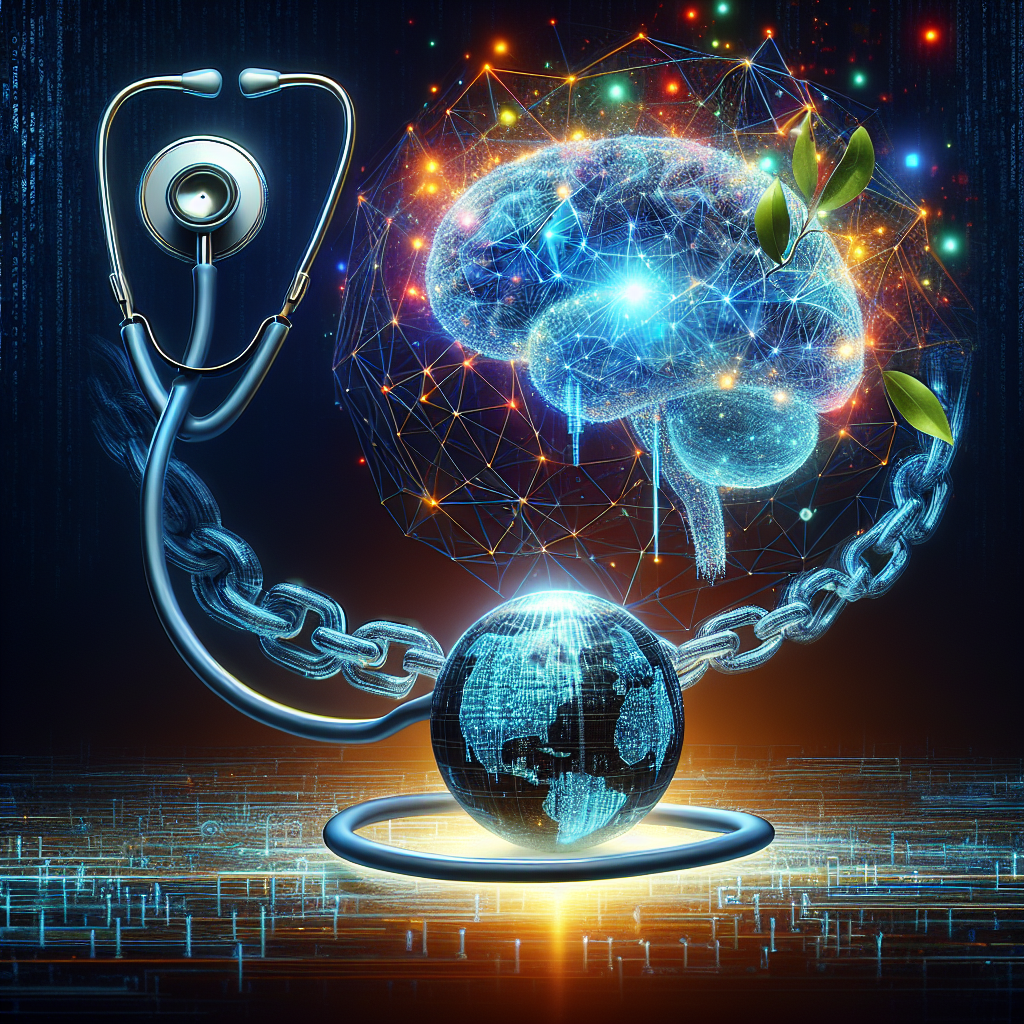In recent years, the field of artificial intelligence (AI) has made significant advancements in various sectors, including healthcare. AI has the potential to revolutionize the way we diagnose and treat diseases, improve patient outcomes, and streamline healthcare processes. However, as AI technology becomes more integrated into healthcare systems, it is essential to consider the ethical implications and responsibilities that come with using AI in the context of health crisis response.
The Role of Ethics in AI Health Crisis Response
Ethics plays a crucial role in guiding how AI is used in health crisis response. As AI systems become more sophisticated and autonomous, it is essential to ensure that they are designed, developed, and deployed in a way that upholds ethical principles and values. Here are some key considerations regarding the role of ethics in AI health crisis response:
1. Privacy and Data Security: One of the most significant ethical concerns surrounding AI in healthcare is the protection of patient data privacy and security. AI systems often rely on vast amounts of sensitive patient data to operate effectively. It is essential to have robust data protection measures in place to prevent unauthorized access or misuse of this data. Healthcare providers must also be transparent with patients about how their data is being used and ensure that they have consented to its use.
2. Bias and Fairness: AI algorithms can inadvertently perpetuate biases present in the data used to train them. In healthcare, this could lead to disparities in the diagnosis and treatment of certain patient populations. It is crucial to regularly monitor AI systems for bias and ensure that they are designed to be fair and equitable for all patients. Healthcare providers must also be aware of the limitations of AI systems and take steps to mitigate bias in their decision-making processes.
3. Accountability and Transparency: AI systems in healthcare are often complex and opaque, making it challenging to understand how they arrive at their conclusions. It is essential to establish clear lines of accountability for AI systems and ensure that healthcare providers can explain the reasoning behind their decisions. Transparency is key to building trust with patients and ensuring that AI systems are used responsibly and ethically.
4. Patient Autonomy: In healthcare, patient autonomy is a fundamental ethical principle that must be upheld when using AI systems. Patients have the right to make informed decisions about their care and treatment options. Healthcare providers must ensure that AI systems are used to support, rather than replace, the judgment and expertise of healthcare professionals. Patients should also have the opportunity to opt-out of AI-driven healthcare interventions if they wish.
5. Human Oversight: While AI systems can perform tasks with speed and accuracy, they are not infallible. Human oversight is critical to ensure that AI systems are used appropriately and ethically in healthcare. Healthcare providers must be trained to understand the limitations of AI systems and intervene when necessary to prevent harm to patients. Regular monitoring and evaluation of AI systems are also essential to identify and address any ethical issues that may arise.
FAQs
Q: How can healthcare providers ensure that AI systems are ethically designed and deployed in health crisis response?
A: Healthcare providers can ensure that AI systems are ethically designed and deployed by following ethical guidelines and principles, such as those outlined by professional organizations like the American Medical Association and the World Medical Association. It is essential to involve ethicists, data scientists, and healthcare professionals in the development and implementation of AI systems to ensure that they align with ethical standards.
Q: What are some common ethical dilemmas associated with using AI in health crisis response?
A: Some common ethical dilemmas associated with using AI in health crisis response include concerns about patient privacy and data security, bias and fairness in AI algorithms, accountability and transparency in decision-making, patient autonomy, and the need for human oversight. Healthcare providers must address these dilemmas proactively to ensure that AI systems are used responsibly and ethically.
Q: How can healthcare providers mitigate bias in AI algorithms used in health crisis response?
A: Healthcare providers can mitigate bias in AI algorithms used in health crisis response by carefully selecting and curating training data sets to ensure that they are representative of the patient population. It is also essential to regularly monitor AI systems for bias and take corrective action when necessary. Healthcare providers should also consider implementing diversity and inclusion initiatives to address systemic biases in healthcare.
Q: What are some potential benefits of using AI in health crisis response?
A: Some potential benefits of using AI in health crisis response include improved diagnosis and treatment options for patients, increased efficiency and accuracy in healthcare processes, and the ability to analyze large amounts of data quickly to identify trends and patterns. AI systems can also help healthcare providers make more informed decisions and improve patient outcomes in times of crisis.
In conclusion, ethics play a critical role in guiding how AI is used in health crisis response. Healthcare providers must consider the ethical implications of using AI systems and ensure that they are designed, developed, and deployed in a way that upholds ethical principles and values. By addressing privacy and data security, bias and fairness, accountability and transparency, patient autonomy, and human oversight, healthcare providers can use AI systems responsibly and ethically to improve patient care and outcomes in times of crisis.

